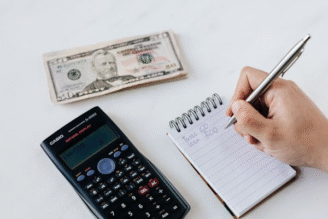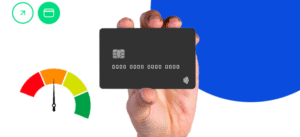Renting or buying: which is the best option for you?
Find out whether it is more worthwhile to rent or buy a property with practical tips, advantages and disadvantages of each option!
Understand which is the best option to rent or buy

Are you thinking about investing in a property, whether it be a house or an apartment, but one of the main questions is: renting or buying: which is the best option? The choice will depend on your needs, such as family size and, mainly, budget.
But after all, how do you choose the ideal option? In this content, we will give you essential tips to help you in the process and find the alternative that best fits your profile. Follow the content until the end to check out the details!
What’s More Worthwhile: Buying or Renting?
There’s no one-size-fits-all answer here, sorry, we wish it were that easy. The “worth” of buying or renting depends on what you’re looking for: stability, flexibility, investment, or freedom.
Buying makes more sense if you’re ready to settle down in one place and want to invest long-term. Renting? That’s your go-to if you need flexibility or you’re not quite ready to commit.
When Is It Worth Buying a Property?
Buying starts to make more sense if you’re planning to stay in the same city or neighborhood for a while, like, at least five to seven years.
That gives your property time to appreciate in value and helps justify those upfront costs like the down payment, closing fees, and moving expenses.
It’s also worth considering if you’ve got a steady income, a solid credit score, and savings for emergencies.
Advantages of Buying a Property
Owning a home comes with some real perks. First off, you’re building equity, which means you’re investing in something that could grow in value over time.
Instead of paying rent to a landlord, you’re putting that money toward something that’s yours.
There’s also the freedom factor. You want to paint the walls neon green? Go for it. Adopt a big dog? No landlord’s stopping you.
And let’s not forget the peace of mind of having a fixed mortgage rate instead of worrying about rising rent every year.
Disadvantages of Buying a Property
But it’s not all sunshine and open floor plans. Buying means commitment. It’s not easy to just pack up and leave if life throws a curveball. And owning a home comes with a lot of responsibility, maintenance, repairs, property taxes… it adds up fast.
Plus, that upfront cost? It can be a real wallet-buster. Between the down payment, inspection fees, and closing costs, you’ll need some serious savings to get started.
The Main Ways to Buy a Property
So, let’s say you’re leaning toward buying. How do you actually do it? You’ve got a few main routes to choose from.
Cash Purchase
If you’ve got the money saved up (or you’ve hit the lottery), buying with cash is the simplest way. No loans, no interest rates, just pay, sign, and the home’s yours. The bonus? You avoid a lot of the extra fees tied to financing.
Real Estate Financing
This is how most people buy homes, through a mortgage. You borrow money from a bank or lender and pay it back monthly over several years (usually 15 to 30).
Real Estate Consortium
Less common in the U.S. but growing in interest, a real estate consortium (think of it like a group buying plan) is where people pool money together monthly until each person eventually gets their turn to buy a property.
When Is It Worth Renting a Property?
Renting is great if you’re in transition. Maybe you’re changing jobs, exploring a new city, or just not ready to settle down.
It also works well if your finances aren’t quite in homebuying shape yet, you don’t have to worry about saving for a huge down payment or paying for repairs.
Renting keeps things simple and flexible. You can pick up and move with way less hassle if your plans change.
Advantages of Renting a Property
The biggest win with renting? Flexibility. No long-term commitment means you’re free to move for work, school, or just for a change of scenery.
You also avoid a lot of the financial headaches that come with owning, no property taxes, no big repair bills, and usually lower upfront costs.
Renting can also give you access to places you might not be able to afford to buy in, like trendy city neighborhoods or amenity-packed apartment complexes.
Disadvantages of Renting a Property
On the flip side, renting means you’re not building equity. That monthly rent payment goes to your landlord, not toward your future wealth.
You also don’t have total control over your space, and you could face rent increases or even get asked to leave if the owner decides to sell.
And let’s be real: having to ask for permission to hang up shelves or get a pet isn’t the most empowering feeling.
Buying or Renting: See What to Consider
When it comes down to it, choosing between buying and renting is super personal. Think about your lifestyle, your job stability, your savings, and how long you plan to stay put.
Do you want to build something long-term or keep things open and flexible? Are you ready for the responsibility of homeownership, or do you need more time to prepare?
Take a close look at your finances, your goals, and your timeline. There’s no shame in renting while you get things in order, and there’s nothing wrong with buying if the timing’s right.
So, what’s the best choice, buying or renting? The real answer is: it depends on you. Renting isn’t a waste, and buying isn’t always better.
Life changes, and so do your needs. The important thing is to make a decision that fits where you are right now, not where others say you should be.
Whether you’re unlocking your first apartment or the front door of your new house, what matters most is that you feel confident, secure, and excited for what’s next.






